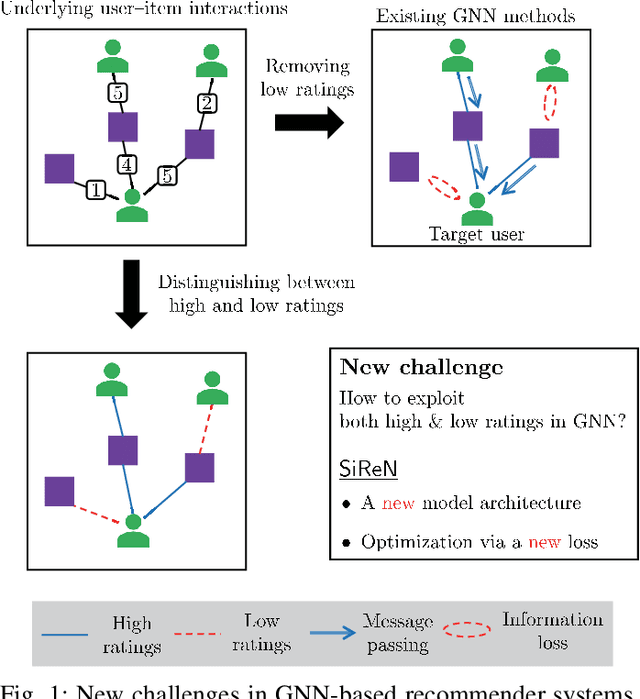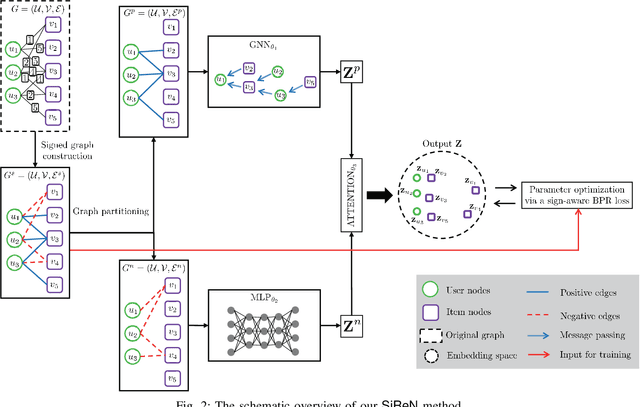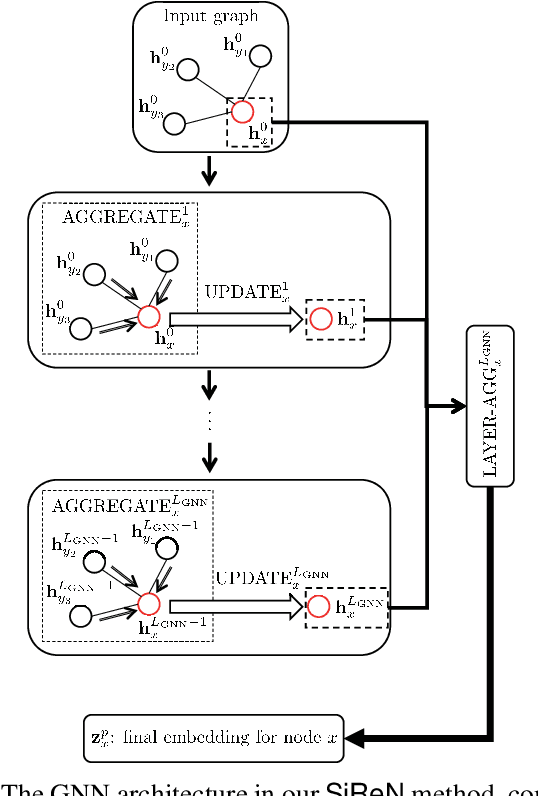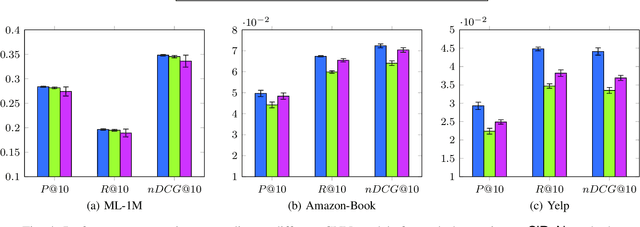Changwon Seo
SiReN: Sign-Aware Recommendation Using Graph Neural Networks
Aug 19, 2021



Abstract:In recent years, many recommender systems using network embedding (NE) such as graph neural networks (GNNs) have been extensively studied in the sense of improving recommendation accuracy. However, such attempts have focused mostly on utilizing only the information of positive user-item interactions with high ratings. Thus, there is a challenge on how to make use of low rating scores for representing users' preferences since low ratings can be still informative in designing NE-based recommender systems. In this study, we present SiReN, a new sign-aware recommender system based on GNN models. Specifically, SiReN has three key components: 1) constructing a signed bipartite graph for more precisely representing users' preferences, which is split into two edge-disjoint graphs with positive and negative edges each, 2) generating two embeddings for the partitioned graphs with positive and negative edges via a GNN model and a multi-layer perceptron (MLP), respectively, and then using an attention model to obtain the final embeddings, and 3) establishing a sign-aware Bayesian personalized ranking (BPR) loss function in the process of optimization. Through comprehensive experiments, we empirically demonstrate that SiReN consistently outperforms state-of-the-art NE-aided recommendation methods.
 Add to Chrome
Add to Chrome Add to Firefox
Add to Firefox Add to Edge
Add to Edge